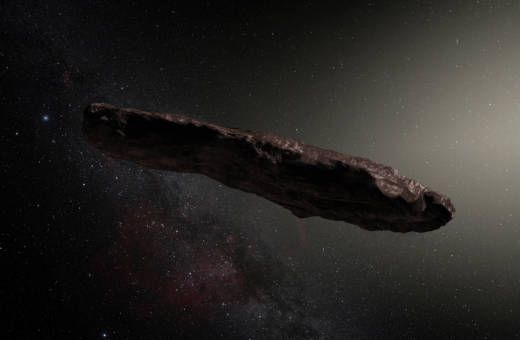Our first known interstellar visitor likely came from a two-star system.
That’s the latest from astronomers who were amazed by the mysterious cigar-shaped object, detected as it passed through our inner solar system last fall.
The University of Toronto’s Alan Jackson reported Monday that the asteroid — the first confirmed object in our solar system originating elsewhere — is probably from a binary star system. That’s where two stars orbit a common center. According to Jackson and his team, the asteroid was likely ejected from its system as planets formed.
“It has been wandering interstellar space for a long time since,” the scientists wrote in the Royal Astronomical Society’s journal, Monthly Notices .
Discovered in October by a telescope in Hawaii millions of miles away, the asteroid is called Oumuamua, Hawaiian for messenger from afar arriving first, or scout. The red-tinged rock is estimated to be possibly 1,300 feet long and zooming away from the Earth and sun at more than 16 miles per second.
